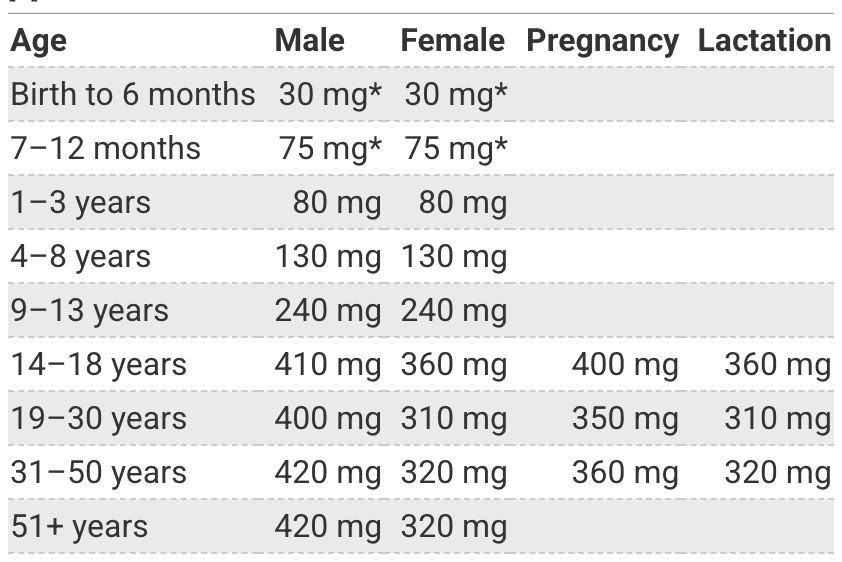AI fake experts flood social platforms, magnesium supplements become the new favorite.
Recently, on social platforms like TikTok, Instagram, and YouTube, magnesium supplements are being heavily promoted by health influencers and their increasingly realistic AI avatars, claiming to improve sleep, reduce stress, and extend lifespan. These magnesium supplements, promoted by real and AI-generated virtual characters, are packaged as panaceas for anxiety, insomnia, and weight gain.
Dr. Steven Chen, associate dean for clinical affairs at USC's School of Pharmacy, told media (Decrypt): 'AI 'doctors' are posting unproven testimonials online in a direct, black-and-white manner, for example: 'If you have this problem, this is the solution.' Such statements are very persuasive for uninformed users. However, what is concerning is that these 'fast food' contents often do not mention potential risks.'
Some supplements contain as much as 700 milligrams per dose, nearly double the recommended maximum intake, prompting doctors to sound the alarm. As AI-generated image technology advances, experts point out that the line between fact and fiction is becoming increasingly blurred, with some ads even using AI technology to make medical experts appear to endorse magnesium supplements, which Dr. Chen calls 'dangerous and unethical.'
Excessive intake can be fatal; patients with kidney disease are at the highest risk.
Most adults' daily magnesium needs do not exceed 400 milligrams and can easily be obtained through foods like peanut butter, cashews, chia seeds, chicken breast, and salmon. However, viral supplements are marketed like performance enhancers, quick, convenient, and algorithmically approved, with some products containing more than double the recommended intake.
 Source: National Institutes of Health (NIH) Recommended daily magnesium intake for different age groups
Source: National Institutes of Health (NIH) Recommended daily magnesium intake for different age groups
Excessive magnesium intake can pose serious health risks, particularly for patients with heart, digestive, or kidney issues. Common side effects include diarrhea, nausea, stomach cramps, flushing, headaches, and muscle weakness. For patients with kidney disease who cannot effectively excrete excess magnesium, it can accumulate to dangerous levels, leading to low blood pressure, difficulty urinating, confusion, shortness of breath, arrhythmias, or slow heart rate, and even heart failure.
For more on 'magnesium,' (Crypto City) recommends readers refer to research data from the National Institutes of Health (NIH).
Dr. Zhaoping Li, director of the UCLA Center for Human Nutrition, explains that magnesium deficiency is common among those with poor diets or chronic alcoholics, which is why magnesium supplementation is often necessary in clinical settings. She points out: 'If you go to the emergency room, they will give you some key nutrients: magnesium is one of them. Based on this background, people are now more freely recommending it for various health benefits, but the real benefits depend on your purpose of use.'
The supplement market is booming, and the lack of platform regulation is drawing attention.
The pursuit of quick solutions for longevity has driven the booming supplement industry. In 2024, the dietary supplement market is projected to be worth $189 billion, and according to market research firm Precedence Research, this figure is expected to reach $402 billion by 2035.
When asked about advertisements containing AI-generated medical testimonials and questionable health claims, the policy explanations provided by social media platforms were quite limited.
A YouTube spokesperson referred to its medical misinformation guidelines, which prohibit content that contradicts local health authorities' guidance.
A Meta representative pointed out its advertising policy, which prohibits deceptive or misleading health claims, the promotion of unsafe supplements, and advertisements that use medical professionals' likenesses without authorization.
TikTok did not respond to media inquiries.
Dr. Chen and Dr. Li both stated that certain forms of magnesium are more easily absorbed and may be useful in specific situations, but the 'complex' products touted to contain over a dozen types of magnesium are mainly marketing strategies. Dr. Li recommends: 'If we really care for everyone's benefit, I would suggest consuming more natural foods high in magnesium, whose benefits far outweigh taking a bunch of pills.' She believes that the real potential of AI in the health industry lies not in marketing supplements, but in understanding the overall nutritional value of food.
'Is it another AI fake news? TikTok goes viral with experts promoting magnesium supplements, excessive consumption may lead to heart failure.' This article was first published in 'Crypto City.'
